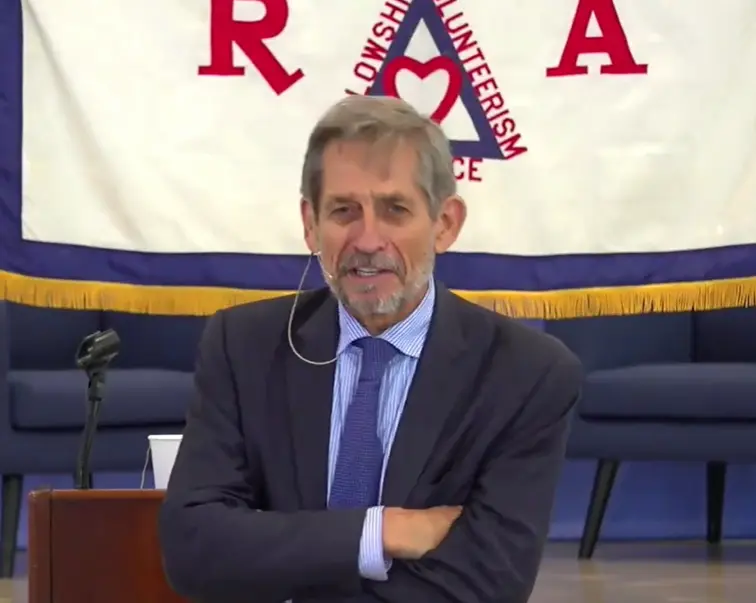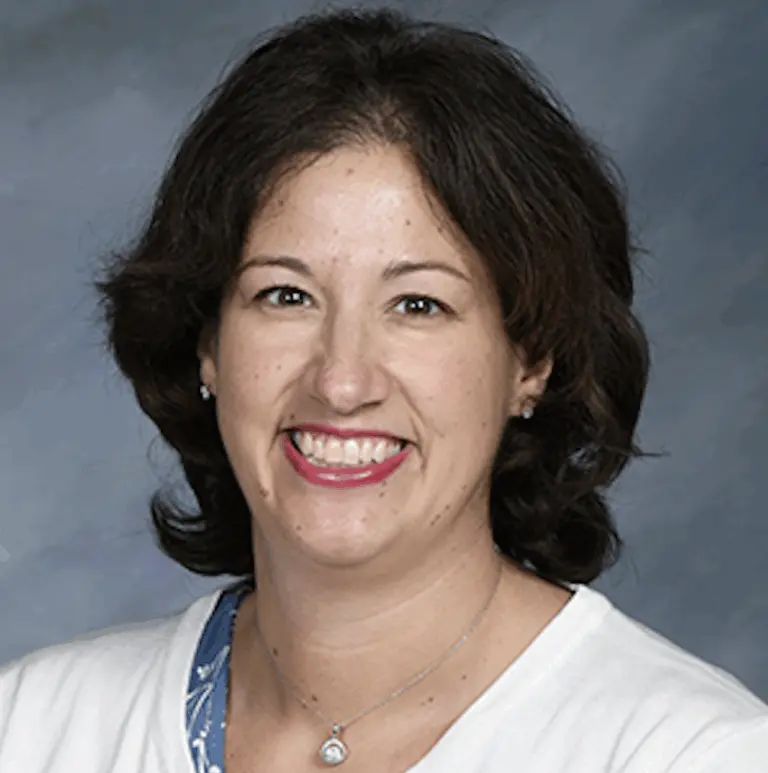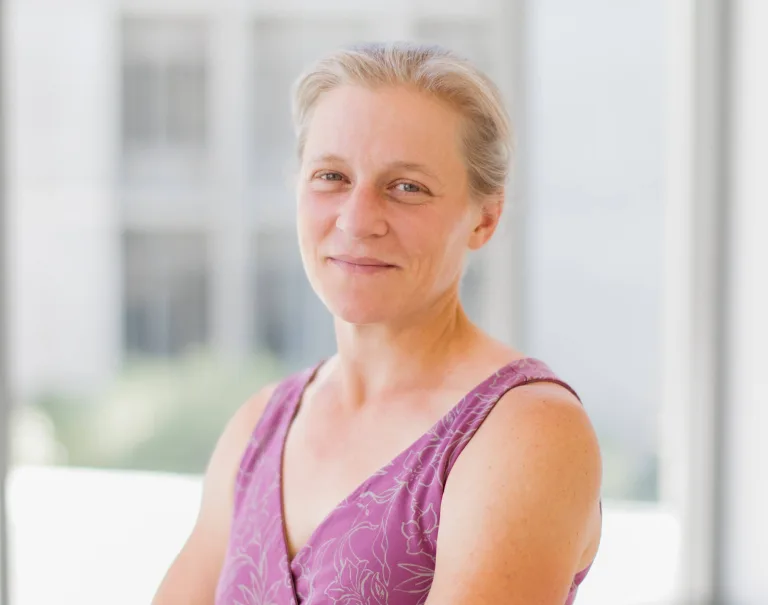
By James Dean
In a candid and thought-provoking address at the September 3 meeting of the Retired Men’s Association, Thomas Graham, a distinguished fellow at the Council on Foreign Relations, offered a nuanced perspective on the protracted conflict in Ukraine. Introduced warmly by host Bob Phillips, Graham, who also co-founded Yale’s Russian, East European, and Eurasian Studies program and served on the National Security Council staff, asserted that President Donald Trump could indeed bring peace to Ukraine, albeit not on the immediate timeline Trump might envision.
Graham highlighted a recent flurry of diplomatic activity, including a summit between President Trump and Russian President Vladimir Putin in Anchorage, Alaska, followed by a meeting with Ukrainian President Volodymyr Zelensky and European leaders to discuss security guarantees. To Graham, this signaled the start of an “intensive period of diplomacy” focused on the complex issues necessary for a satisfactory conclusion to the conflict.
Despite what he characterized as significant media criticism of Trump’s recent conduct, Graham delved into three primary areas of concern. The first was the Anchorage meeting itself, where Trump’s warm welcome to Putin was seen by many as validating the Russian leader and bringing him out of isolation. Graham acknowledged the justification of this criticism, noting that the Russian press began to speak of “two superpowers” again. However, he emphasized that dialogue with the opposing side is “imperative,” to understand red lines and potential compromises.
The second criticism focused on the perceived lack of momentum in the diplomacy, particularly Putin’s insistence that he would not meet with Zelensky unless Ukraine was prepared to surrender – a non-starter for Kyiv. Yet, Graham revealed that substantial work was occurring behind the scenes. European allies are concretely discussing security guarantees and military assistance for Ukraine, including the possibility of “boots on the ground” in a peace deal. Ukraine, too, is intensifying efforts to develop its own defense industrial sector to produce necessary equipment and build a military deterrent. Meanwhile, Washington and Moscow are in private conversations to clarify the ambiguities from the Anchorage talks. Graham stressed the importance of this private diplomacy for sensitive issues.
Finally, Graham addressed Trump’s pivot from demanding a ceasefire and threatening sanctions, to instead seeking a comprehensive peace agreement before any cessation of hostilities, a position that echoed Putin’s long-standing stance. Graham offered two key insights: first, there was little evidence that the West or Ukraine possessed the means to compel Russia into a ceasefire anytime soon. Second, he reminded the audience that, historically, diplomacy and warfare often occur simultaneously, citing the Korean, Vietnam, and Afghanistan wars as examples. Given the immense complexity of a comprehensive peace, Graham suggested focusing on a framework agreement outlining principles and parameters for an ultimate settlement. Such an agreement, offering confidence to both sides regarding their vital interests, could pave the way for a ceasefire and subsequent detailed negotiations, a path lower-level administration officials are reportedly exploring.
Graham argued that the current moment presents an opportune time for serious peace talks, as both Ukraine and Russia possess strategic reasons to end the conflict swiftly. Ukraine faces a severe demographic crisis, exacerbated by millions fleeing abroad, and horrific economic devastation, with reconstruction costs estimated to be upwards of half a trillion dollars. Prolonged conflict also threatens the consolidation of Ukraine’s nascent democratic systems. While Ukraine is unlikely to join NATO or militarily regain all occupied territories, it can achieve its essential goal: preserving a sovereign, independent state capable of self-defense, accelerating European integration, and building a prosperous democracy. Graham cited Finland’s post-World War II experience as a model for recovery and prosperity despite territorial losses.
For Russia, the costs are equally compelling, albeit different. The conflict has resulted in an estimated million-plus casualties, with 250,000 to 300,000 killed – a figure exceeding all Russian losses in combined conflicts since World War II. The economy is strained, facing recession and stagflation, and Russia is falling behind in cutting-edge technology compared to global powers like the United States, China, Europe, and even India. Graham highlighted that normalizing relations with the U.S. is crucial for Russia to open commercial opportunities and, critically, to rebalance its increasingly asymmetrical relationship with China, whose economy and technological capabilities vastly outweigh Russia’s. Without the U.S. as a counterbalance, Russia cannot maintain its status as an independent great power.
Despite these strategic imperatives, Putin remains focused on maximal demands, believing Russia holds the advantage and that Ukrainian and European resolve will eventually falter. To navigate this, Graham proposed four key steps for U.S. policy under the Trump administration: establish unity among Ukraine, Europe, and the U.S. on the ultimate goal of preserving Ukrainian sovereignty and westward integration; continue supporting Ukraine militarily, prioritizing direct equipment provision and investment in its defense industrial sector, while exercising caution with additional sanctions due to potential global “knock-on effects”; maintain dialogue with Russia at various levels, as they are instrumental to any cessation of hostilities; and finally, demonstrate persistence and patience, making it clear to Putin that time is not on his side.
Graham concluded that while Trump has created an “opening,” peace is not easily achieved, requiring “a lot of hard work.” He emphasized that the coming months would reveal if Trump possessed the capability to see this through to an end that serves American interests. A lively Q&A ensued.
The talk can be viewed by going to the RMA website at https://greenwichrma.org, and clicking on “Speakers.”
The RMA’s next presentation, “Understanding Dementia: Vital Insights for You and Your Loved Ones” by Matthew McConnell, M.D., is scheduled for 11 AM on Wednesday, September 17, 2025. RMA presentations are held at Christ Church Greenwich, Parish Hall, 254 E. Putnam Avenue, Greenwich, CT 06830.
In this informative presentation Dr. Matthew McConnell will address key questions regarding dementia, for which there is as yet no cure.
• What behavioral changes are there in normal aging?
• What behavior suggests that we get tested for dementia?
• What medications have been developed to treat/restrain dementia?
• What is the focus of current efforts to find a cure for dementia?
The presentation will be followed by an opportunity for audience questions and answers.
Dr. McConnell is a board-certified neurologist and epileptologist. He was formerly one of the medical directors of Atrium Health, serving as a general neurologist and epileptologist managing four offices in the Charlotte, North Carolina region. He was also a Clinical Assistant Professor at Wake Forest University School of Medicine.
Dr. McConnell attended Duke University where he received his Bachelor of Science degree in neuroscience and psychology with a minor in biology and chemistry. He went on to complete his medical degree at Wake Forest University. He completed his neurology residency at University of Virginia followed by an epilepsy fellowship at the University of North Carolina.
Dr. McConnell’s approach to patient care is centered around listening carefully to the details of the patient’s life and tailoring a treatment approach that is unique to their diagnosis, personal preferences, and lifestyle. He believes that the physician-patient relationship is deeply based around communication and trust.
To stream the presentation by Matthew McConnell, M.D. at 11 AM on Wednesday, September 17, click on https://bit.ly/30IBj21. This presentation will also be available on local public access TV channels, Verizon FIOS channel 24 and Optimum (Cablevision) channel 1310.
Note: The views expressed in these presentations are those of the speakers. They are not intended to represent the views of the RMA or its members.
RMA speaker presentations are presented as a community service at no cost to in-person or Zoom attendees, regardless of gender. Any member of the public who would like to receive a weekly email announcement of future speakers should send a request to members@greenwichrma.org. The RMA urges all eligible individuals to consider becoming a member of our great organization, and thereby enjoy all the available fellowship, volunteer, and community service opportunities which the RMA offers to its members. For further information, go to https://greenwichrma.org/, or contact info@greenwichrma.org.




